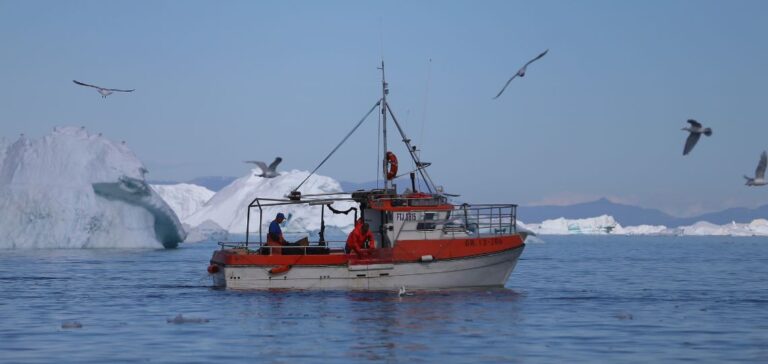Norway’s right to fish in the Arctic is disputed. However, Norway’s highest court ruled in favor of the Norwegian state on Monday and confirmed its exclusive rights to the continental shelf around theSvalbard archipelago in a sensitive case with potentially significant repercussions.
15 Supreme Court judges rejected a request from the Latvian shipowner SIA North Star to be allowed to fish freely for snow crab around this Arctic archipelago, citing treaty provisions that allow for different interpretations.
The stakes of the Arctic fishing rights for Norway
Beyond the snow crab, the case is of particular importance because it is considered as a test for the control of other resources likely to be found in these seabeds (hydrocarbons, minerals…).
The arguments of each party
In the area of fisheries, Norway has reserved the exclusive right to fish snow crab for Norwegian fishermen. However, the company SIA North Star invoked an article of the treaty concerning Spitzbergen, also known as Svalbard, to obtain the right to fish for this crustacean. This treaty was signed in 1920 in Paris and governs the governance of this territory which is twice the size of Belgium. It recognizes Norway’s “full and complete sovereignty” over Svalbard, but also grants the nationals of the contracting parties the right to exploit the natural resources “on a perfectly equal footing”.
However, the treaty states that this equal treatment applies only to the lands of the archipelago and to the “territorial waters”, a concept that today refers to a 12-nautical-mile maritime zone, but which was not precisely defined in 1920. SIA North Star insisted that this provision should apply to the entire continental shelf, a much larger area that also had no legal existence at the time the treaty was signed.
The Supreme Court rejected this argument, holding that the treaty language was not subject to “stretch interpretation. She pointed out that there has been no evolution in international law that would make the concept of territorial waters include areas beyond territorial waters today. Therefore, the exclusive right to fish snow crab remains with Norwegian fishermen.
The reactions of the parties
Several countries, including France, the United States, Latvia, the United Kingdom and Russia, have signed a treaty. However, Norway has made a restrictive interpretation of the text, which distinguishes it from other signatories. To date, no international legal body has been seized of this issue. Hallvard Østgård, the Latvian shipowner’s lawyer, said the case has important legal and political aspects. He hopes that the case will be brought before the International Court of Justice (ICJ), but only states have the power to bring the case before that body.






















